The man who collected 18,000 books about Wales
- Published
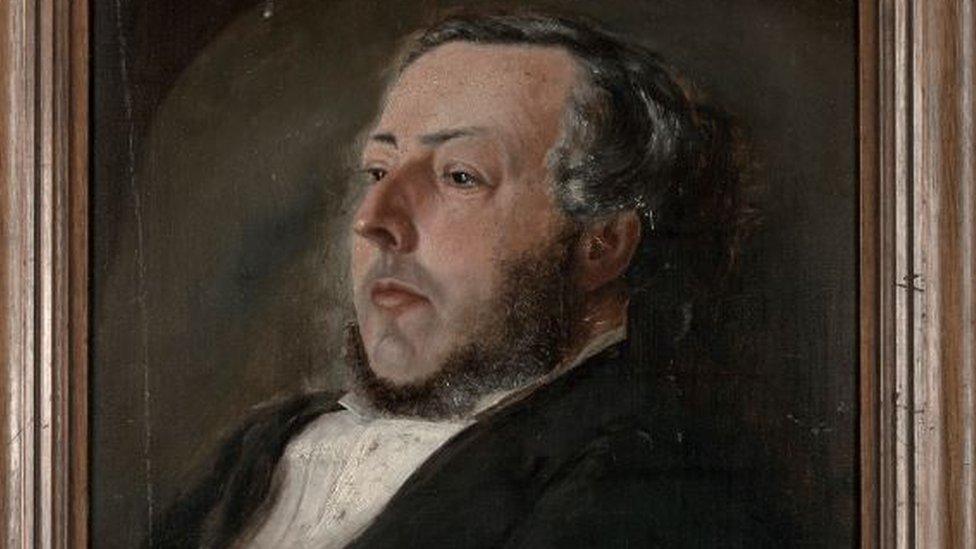
Portrait of E G Salisbury - 1867: He was also a notable barrister in north Wales
The life of a maverick Welsh collector who built the first major library of books about Wales is being celebrated 200 years after his birth.
Enoch Salisbury created a collection of over 18,000 books about Welsh culture, politics, geography and beyond.
The Flintshire bibliophile's work is now looked after by Cardiff University, who are welcoming people to take a closer look.
The wide-ranging collection features books in both English and Welsh.
Highlights include a rare piece of black Welsh history, a less than sensitive phrasebook for English travellers in Wales and the scribbles of a noted Welsh forger and cultural pioneer.
Born in Bagillt on 7 November 1819, Salisbury became a notable barrister on the north Wales circuit, and briefly served as a Liberal MP.
His collection was described at the time as the "most comprehensive collection of works relating to Wales and its people ever made", and today is known as the "alternative library of Wales".
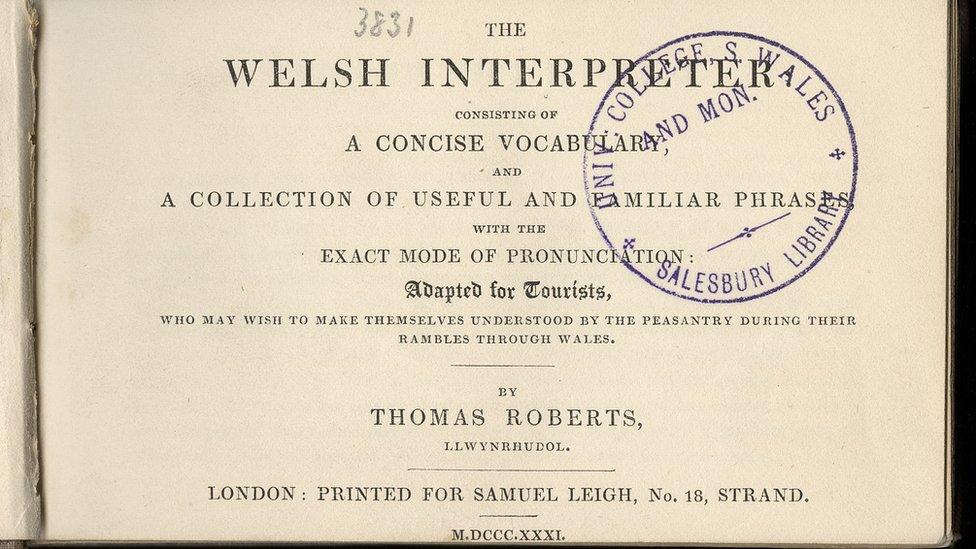
The Welsh Interpreter - 1838: "Adapted for tourists"
Yet his passion led him to bankruptcy, necessitating the sale of his collection in 1886 to the University College of South Wales and Monmouthshire, now Cardiff University.
Alan Vaughan Hughes, head of special collections at Cardiff University Libraries, said: "We joke that it's the 'alternative national library' - but what Salisbury did was visionary.
"He saw the need to start collecting books about Wales, long before the national institutions we take for granted today. And he just went and did it.
"He was so much more than an eccentric book collector - he created an amazing picture of our culture, our literature, politics, geography and much more.
"It's about time we celebrated Salisbury and his contribution to Welsh life."
The collection includes a narrative by former slave William Hall, who recounts his escape from the American south and journey to Cardiff in 1862.
On a lighter note, "The Welsh Interpreter" is an 1838 phrasebook aiming to provide "vital vocabulary" to English travellers, "who may wish to make themselves understood by the peasantry during their rambles through Wales".
While it includes translations for: "Shave my beard", "Take charge of the ladies", and "Can you get me some snuff?", the word for "please" is entirely absent, and "thank you" only appears on page 56.
One volume by David Richards is littered with the angry annotations of noted scholar and forger Iolo Morganwg, who went on to establish the Gorsedd of the Bards, including one which notes that "the language of this book is an enormous pile of filth".
The library also includes several works on education and literature by Salisbury's own hand.
When Salisbury's fanatic acquisitions led him to financial ruin in 1886, just four years before his death, the collection was saved by a group of Cardiff scholars and businessmen, including department store magnate James Howell.
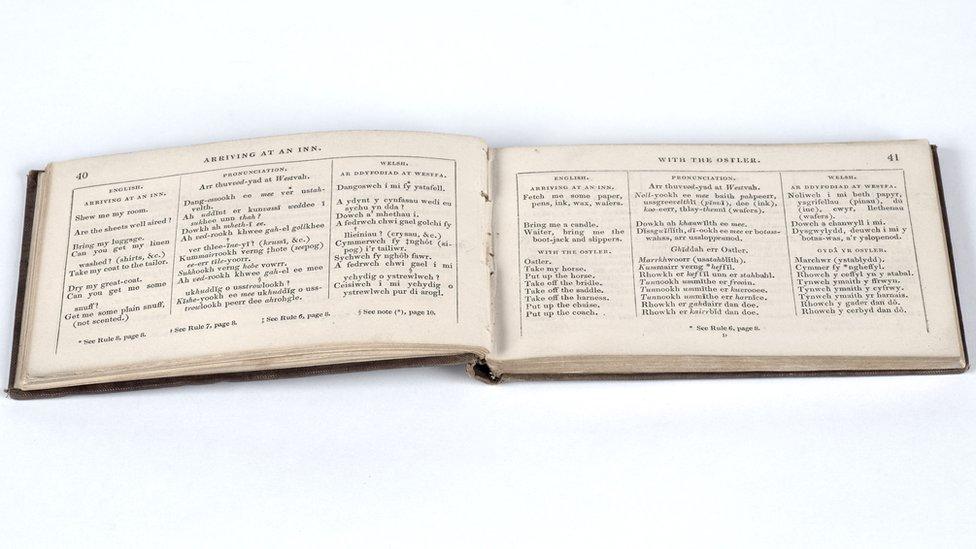
The Welsh Interpreter gives readers advice on what to say when "arriving at an inn"
All 18,000 tomes arrived in Cardiff to considerable ceremony - in a first class train, especially commissioned for the occasion.
Prof Damian Walford Davies, pro vice-chancellor at the College of Arts, Humanities and Social Sciences, said: "Cardiff University has a rich history of pioneering Welsh scholarship, and the Salisbury Collection is one of its cornerstones - a treasure-archive for the study not only of literature but also of our politics, geography and the history of our communities.
"We're immensely proud of the Salisbury collection, and even prouder that it is a resource that's open to everyone.
"Whatever your background, if you're interested in Wales' layered history and culture, then this collection is for you."
A special viewing of the library at their "Special Collections and Archives" department takes place on Colum Drive, at 18:00 GMT on 7 November.
- Published18 April 2019

- Published2 February 2019
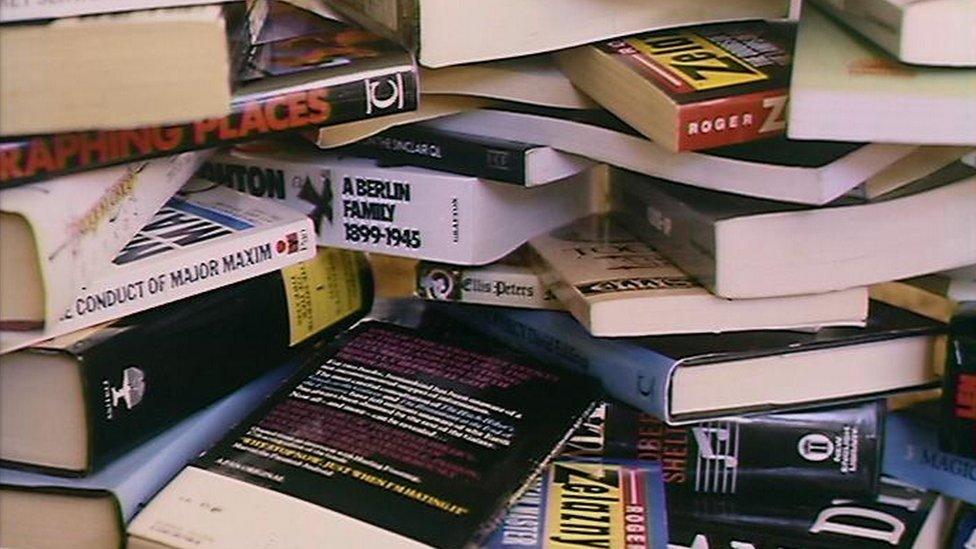
- Published12 April 2018
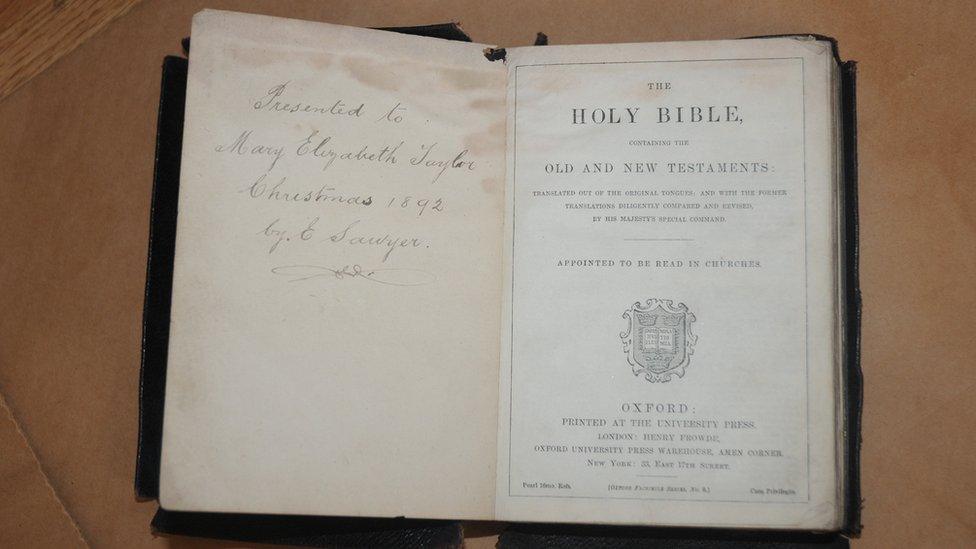
- Published31 January 2018
